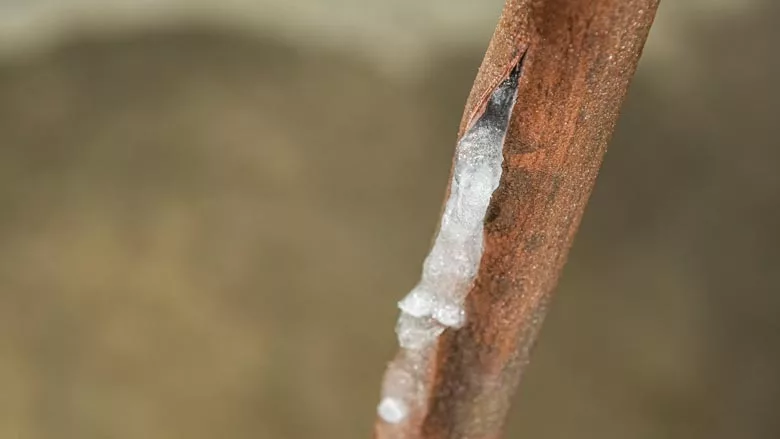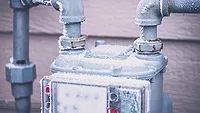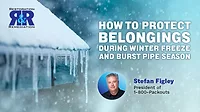How to Protect Your Property from Frozen Pipes This Winter
The Ultimate Guide to Preventing Frozen Pipes and Protecting Your Customer’s Property

Photo: cmannphoto /iStock / Getty Images Plus via Getty Images
Frozen pipes are one of the most common and costly issues property owners face during winter. We see frozen and burst pipes as a top problem as temperatures drop. Leading up to the height of the winter season, taking proactive measures can help property owners avoid costly repairs and disruptions.
Why Frozen Pipes Are a Major Concern
When water freezes, it expands, creating immense pressure inside pipes. This pressure can cause pipes to crack or burst, especially in areas with limited insulation or exposure to extreme cold. The damage doesn’t stop at the plumbing system — burst pipes can release gallons of water into your home or business, leading to flooding, structural damage, ruined belongings and the potential for mold growth if not addressed properly.
Vulnerable areas often include unheated or uninsulated areas such as basements, attics, crawl spaces, garages or pipes running along exterior walls. These spaces are more exposed to the elements and lack the warmth necessary to prevent freezing. Once a pipe bursts, the damage can escalate quickly, making fast action and professional assistance essential.
Preventative Measures to Avoid Frozen Pipes
The best way to protect your property from frozen pipes is to focus on prevention. Start by insulating pipes in areas prone to freezing. Foam pipe insulation or heat tape provides an added layer of protection, keeping the water inside pipes above freezing temperatures. Address drafts by sealing gaps or cracks near pipes with caulking or weather stripping, particularly around windows, doors and foundations.
Maintaining a consistent indoor temperature is another critical step. Even when away from your property, keep the thermostat set to at least 55°F to ensure that all areas remain warm enough to prevent freezing. During particularly cold spells, letting faucets drip slightly can keep water moving through the pipes, reducing the risk of freezing.
Outdoor faucets and hoses also need attention. Disconnect garden hoses, shut off outdoor water supplies and drain any remaining water from outdoor faucets to prevent freezing and expansion.
What to Do if Pipes Freeze or Burst
Even with preventative measures, pipes may still freeze in extreme weather conditions. If you suspect a frozen pipe, shut off the main water supply immediately to prevent further pressure buildup. With caution, attempt to slowly thaw the pipe using safe methods such as warm towels. Avoid open flames or high heat, as these can damage the pipe further or create a fire hazard.
If a pipe bursts, it’s essential to contact a professional immediately. The sooner the water damage is addressed, the less likely it is to lead to mold growth or structural damage.
The Role of Restoration Specialists in Water Damage Recovery
Restoration and remediation specialists play a vital role in recovering from the aftermath of a burst pipe. With expertise beyond repairing immediate damage, restoration professionals can extract standing water and use advanced drying equipment to ensure all affected areas are thoroughly dried to prevent mold growth.
These professionals also repair structural damage, whether it’s replacing drywall, flooring or insulation. In addition to addressing visible damage, they assess hidden areas for moisture to mitigate long-term risks. Restoration specialists not only restore your property to its original condition but can also provide guidance on improving insulation, relocating pipes or other preventative measures to reduce future risks.
Be Prepared This Winter
Winter weather can be unpredictable, and the damage caused by frozen or burst pipes can escalate quickly. Taking these proactive steps, such as insulating pipes and sealing drafts, can significantly reduce the risk of costly repairs.
In the event of a frozen or burst pipe, restoration specialists are equipped to handle the situation promptly, ensuring that your property is restored to its original condition with minimal disruption. Don’t wait until it’s too late — prepare your property now to avoid potential issues this winter.
Looking for a reprint of this article?
From high-res PDFs to custom plaques, order your copy today!








